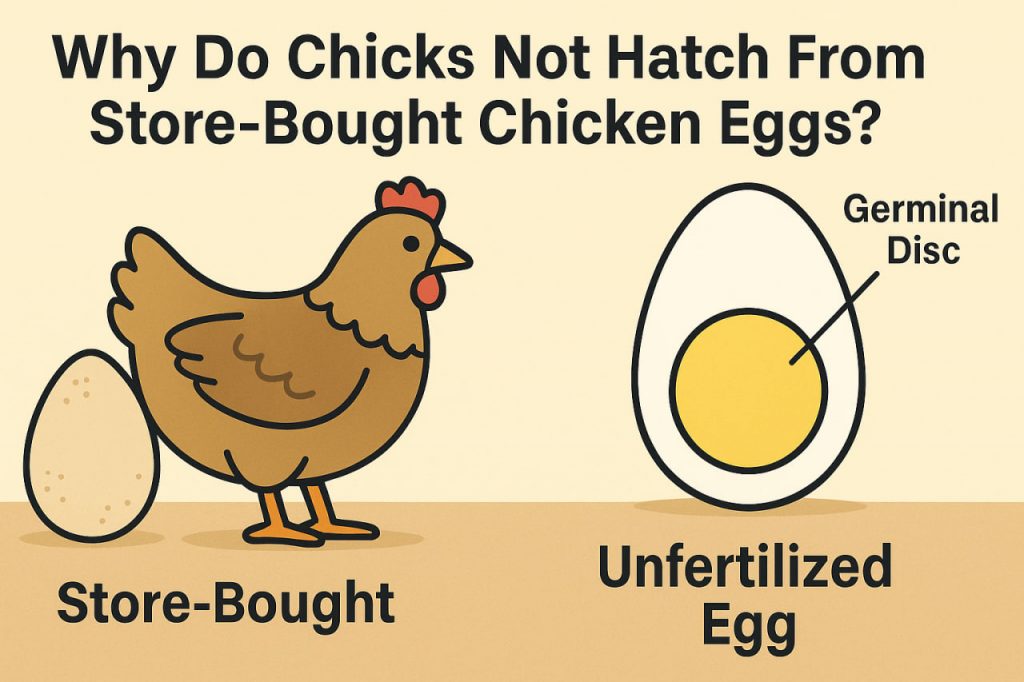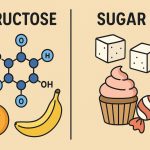The main reason chicks do not hatch from store-bought eggs is that most commercial eggs are unfertilized. For an egg to develop into a chick, it must be fertilized by a rooster during reproduction. In large-scale poultry farming, hens are often kept without roosters, meaning the eggs they lay cannot produce chicks, even if incubated. These eggs are intended solely for human consumption.
How Fertilized Eggs Develop
In fertilized eggs, the embryo begins to form when conditions such as temperature and humidity are suitable. This usually happens under a brooding hen or in an incubator. If conditions are right, cell division begins within a few days, and a chick develops over about 21 days. Unfertilized eggs, by contrast, have no genetic material from a rooster and cannot begin embryonic growth.
Industrial Egg Production
In commercial egg farms, hens are housed specifically for high egg yield, not for breeding. They are selected for traits such as frequent laying and uniform shell quality. Because introducing roosters would complicate production and create fertilized eggs, farms avoid them. This ensures consistency, longer storage life, and safety for consumers. As a result, eggs sold in supermarkets are almost always unfertilized.
Preservation and Processing
Even if a fertilized egg were to reach a store, modern storage practices make development impossible. Eggs are collected, cooled, and refrigerated to prevent bacterial growth and maintain freshness. Low temperatures stop any chance of embryo development. Additionally, in some countries, eggs are washed and sanitized before sale, which further reduces viability for hatching.
Misconceptions About Store Eggs
Some people mistakenly believe that any egg has the potential to become a chick if incubated. However, without fertilization, this is biologically impossible. Others think that visible features, such as a spot on the yolk, indicate a chick, but this is actually the germinal disc, present in all eggs. In unfertilized eggs, it never develops into an embryo.
Exceptions: Fertilized Eggs Sold for Consumption
In rare cases, fertilized eggs may be sold in specialty or farm markets, particularly in regions where roosters and hens live together. Even then, refrigeration and handling make chick development unlikely. To hatch, such eggs must be incubated immediately under proper conditions.
Conclusion
Chicks do not hatch from store-bought eggs because they are almost always unfertilized and stored in conditions that prevent development. Egg production is designed for food supply, not for breeding. Understanding the difference between fertilized and unfertilized eggs explains why supermarket eggs remain just food, not potential life.
Glossary
- Fertilized egg – an egg that has combined genetic material from both a hen and a rooster.
- Unfertilized egg – an egg laid without rooster involvement, incapable of developing into a chick.
- Incubator – a device that maintains proper temperature and humidity for chick development.
- Germinal disc – small spot on the yolk that can begin embryonic growth if fertilized.
- Brooding – natural incubation behavior of hens sitting on eggs to hatch chicks.


